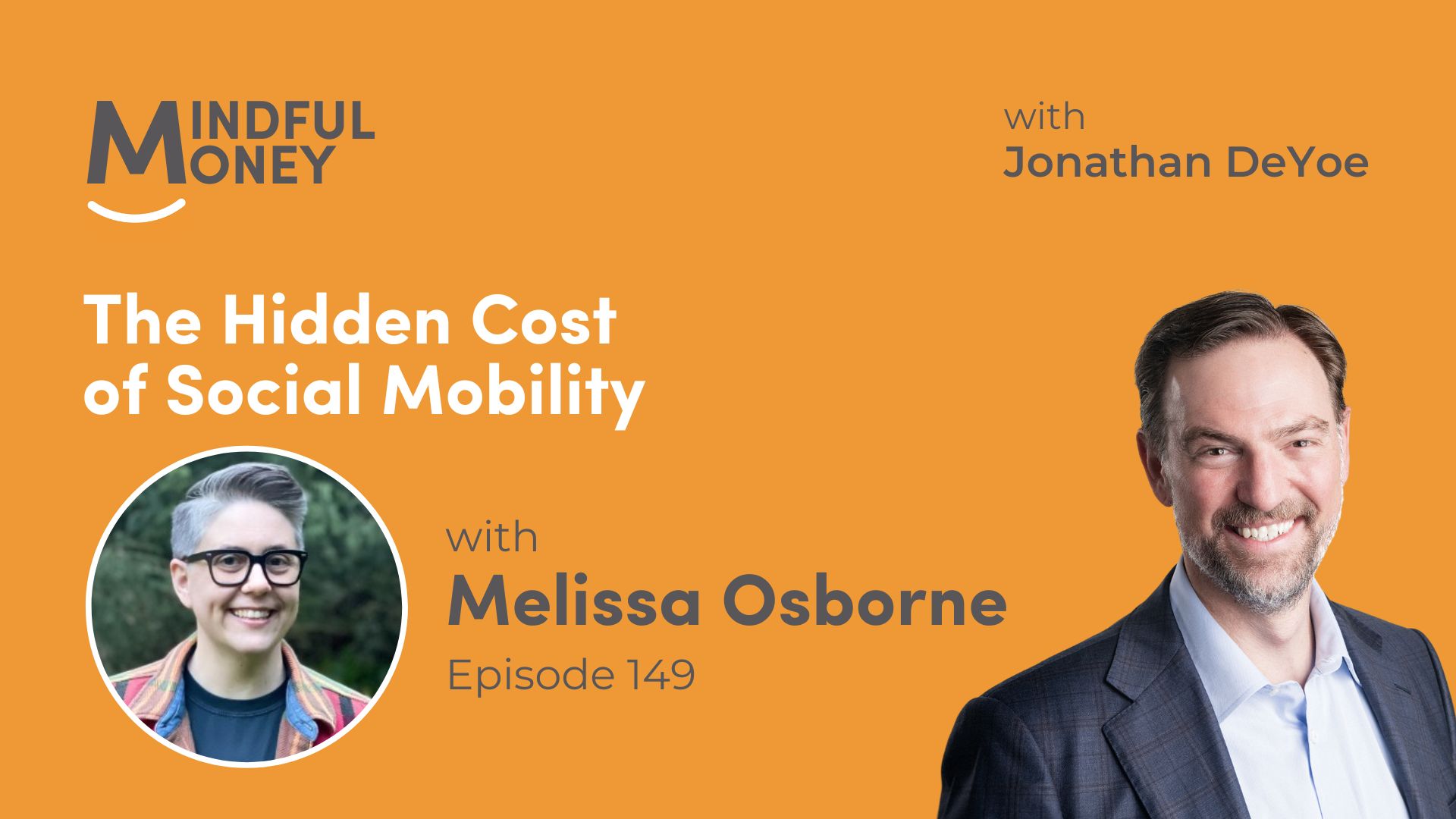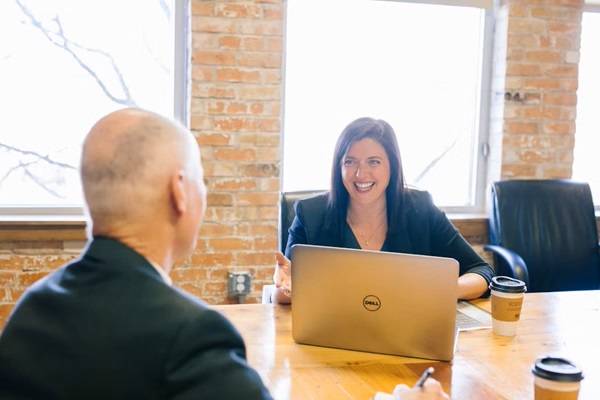Thank you David for a great interview! We talked a lot about Mindful Money’s focus on behavioral wealth advising, financial planning and education, and how my personal meditation practice ties in to each of the above.
SKIP TO:
Goal-Focused & Planning Driven
[00:42]
I refer to everything we do as “behavioral wealth advice.” What that means is… we’re always planning-oriented, and we’re always educating. Where most advisors are market-focused and performance-driven, we are goal-focused and planning-driven. That’s what we always do, and in times like this… we just revert back to the plan.
The Plan is to Personal Finance as The Breath is to Meditation
[02:25]
Our plan is like our breath. That’s where mindfulness and money come together. We often are moved by what’s going on in the world, and we shouldn’t be. We should be able to go, “Okay, what does my plan say I’m supposed to be doing here? And go back to the plan. That’s why I refer to my plan as my breath.
I Could Never Meditate
[06:26]
It’s impossible to clear the mind. That’s the point, is to recognize how impossible that is. When I talk to people who don’t meditate, they go, “Oh, I could never meditate, I can’t sit still for that long.” I’m like actually, you can sit still, it’s just that you can’t quiet your mind. You never know what your mind is going to dredge up, so maybe that’s a muscle you should flex. … Mindfulness training really lets you go, “Okay, that doesn’t matter, this doesn’t matter, this I SHOULD focus on.” [This will] let you be active in the process of what are you thinking about.
Financial Literacy
[10:40]
We don’t really teach anything about finance in any part of our lives. We would benefit so much, not just with financial literacy, but just some basic economic literacy, which we don’t have. Unless somebody pursues that as a career or has an interest or a passion of their own, you don’t run into that just day-to-day. That’s a problem.
First Rule of Money
[14:02]
The first rule is, spend less than you make. It sounds simple, sounds straightforward, like “Anybody can do a spreadsheet or use Quicken, etc.” but [these are] some of the common tripping points where people procrastinate, [thinking] “I’ll get there later,” or they overlook some pretty obvious things that are gouging their budget.
Wants vs. Needs
[15:06]
[The second rule is getting clear on wants vs. needs.] We confuse wants and needs on a real regular basis. We’re ALWAYS confusing wants and needs. You have to say, “Okay, do I really want to do this? Do I want to retire when I’m 65, or wait ’til I’m 70?”
Have a Plan
[15:56]
The third is, make sure you have a financial plan. If you have that financial plan, then you know how you’re getting from here to there. You get to know your future self and what your future self might want. But, we don’t defer gratification to our future selves, we want it right now. And if we confuse our wants and our needs and we can’t defer gratification to or future selves, we just don’t get there.
Save More
[16:17]
I’ve never met somebody who said, “I don’t have enough to save,” who, once we looked at their budget, we didn’t find something to save. I’ve always found a way.
Become an Owner ASAP
[18:10]
This is fundamental: You have to become an owner. I don’t care how you do that. You could start your own company — even if you don’t succeed, you get to understand what a balance sheet is, how a P&L works…. anyone, with almost no money can begin with a small brokerage account with $100/month and invest in the great companies the United States and the world. If you do that on a regular basis, you will see your wealth position improve no matter how socioeconomically disadvantaged you are to start.
Looking For Advice? Find a Fiduciary.
[24:44]
The [finance] industry does a really good job of hiding malfeasance and parading someone that’s not brilliant as brilliant. I think the fundamental thing is, you want someone that you can sit across the table from, face-to-face. I think you want a human. I think you want (and this is probably the #1 thing) someone who is a fiduciary. A fiduciary is someone who legally has to put your interests above theirs. [Not] someone that’s incentivized by commission, or someone that says “I’m gonna sell you something” that pays them more, or isn’t quite appropriate for you. Then, you want to make sure that person is going ask you all kinds of questions. It’s not, “here’s my money, invest.” It’s here’s my money and all my cash flows, and all the information about my goals and my hopes and my dreams. How should I put this to work, so I make those hopes and dreams become reality? [You should also] be prepared to ask some tough questions.
Get a Mentor or Find a Coach
[28:20]
Mentoring is actually one of the things that’s missing in our culture. By mentoring people you vastly improve their lives, and by having a mentor it can make all the difference in yours. You need to be in a mentoring relationship where you have someone who’s more senior to you, that you can learn from and gain from, and then in the opposite direction you need to be mentoring someone.
15 years ago I committed to two things that were really important[to my success]: One of them was, I got myself a coach. The other one was [taking charge of] my health.
Start With a Plan
[32:02]
How do you stay on the path now, if you don’t have a path? It’s incredibly difficult to stay on the path, but if you have something you’ve looked at [a plan] and said, “Okay, if I save this amount and I invested in this way, I can expect some volatility, I can expect some craziness, but I know I’ll get to where I’m going — if I just do these very simple things, and then 3 years into my 30-year plan, Corona hits — what do I do differently? Well, I’m scared, I’m nervous, my gut reaction is to do something that’s not good for me. But if I have a plan [I believe in], I can look back at the plan, and the plan tells me what I’m supposed to be doing, I can ignore the noise. The plan understands that there’s going to be zigs and zags in the world, and they’re gonna be unpredictable. It gets me to my goals.
Review it Annually (At Least)
[33:26]
How often [people] should they be looking at their plan this is very personal. By looking at the plan on a more regular basis, before you make [a] big decision, it gives you the comfort in the decision you’re about to make. But there’s a point where, after you reviewed it once a year or twice a year for a period of time, you don’t need to review it as much anymore.
Know Your Assets, Your Incomes, Your Expenses
[35:56]
There are three pieces of the structure [of a plan]. What are the value of the assets, what are the inflows, what are the outflows. Then project that forward for years… — you ought to look at these as you approach big decision points.
Beware the Creeping Lifestyle
[37:32]
I find most people fall down by deviating from the long-term plan in little pieces, bad habits, procrastination, violating the objectives in little ways. There’s no big decisions. It’s, “I can think about it later” and then, “Oops, wait a minute, how did I get here?” That’s one of the reasons you want an accountability partner.





